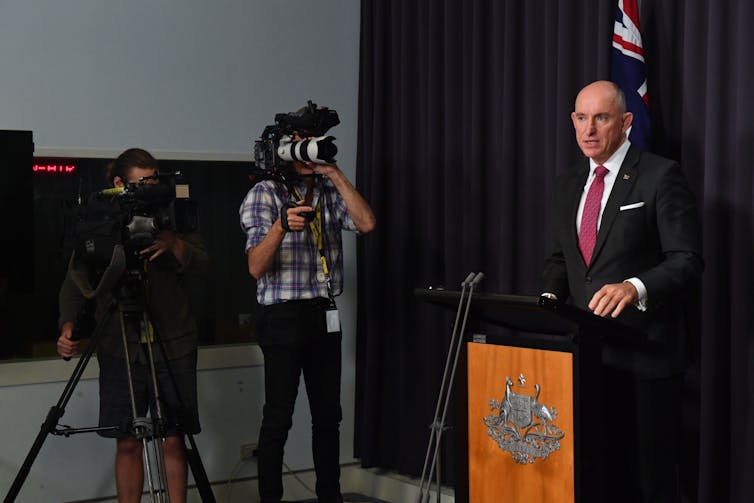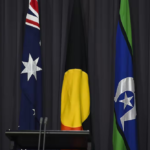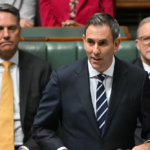This week Education Minister Jason Clare has kicked off what could be a major reset of university research funding in Australia.
He first announced a review of the Australian Research Council (ARC) in July but released the details of how it would work on Tuesday. He also released a strongly worded “letter of expectations” about the ARC’s work for the rest of 2022.
This follows serious concerns about ministerial interference in funding decisions under the Morrison government. It also follows ongoing frustrations and heartache within the academic community over the huge amount of work involved in applying for grants, the low rates of success and long waits for outcomes.
There are both encouraging moves and some worrying signs in the new government’s approach to the ARC.
What is the ARC?
The ARC is the independent body that funds non-medical university research in Australia. It issues about A$800 million in funding each year.
A successful grant is one of the key ways an academic progresses their career. So there is a lot that rides on ARC decisions.
What did Clare announce?
On Tuesday, Clare made public a letter he sent to ARC Chief Executive Officer Judi Zielke last Friday. The letter contains Clare’s “expectations” for the research council in 2022. This includes:
- minimising the administrative burden on researchers applying for funding
- delivering all future grants rounds on time and to a pre-determined timeframe
- keeping the controversial “national interest test”, but making it “clearer”
- stopping work on the Excellence in Research for Australia (ERA) 2023 round.
Clare also gave us the details about an independent review of the ARC’s role, purpose, functions and structures. The review will look at whether the 2001 legislation governing the ARC has kept pace with its current responsibilities and compare it to similar bodies internationally.
The review starts next month and will report back by the end of March 2023. It will be lead by Queensland University of Technology Vice Chancellor Professor Margaret Sheil.
The review is on top of an internal ARC review about its processes that is already under way.
The good news
The big surprise is that work stops on the ERA’s 2023 round. ERA assesses the quality of the research universities have published and been funded for, against international benchmarks.
Clare has asked this work to be stopped to reduce the workload on universities – and to prepare for a more “modern data-driven” approach. The news takes some immediate pressure off researchers, which will be welcome in universities still under pressure from COVID disruptions.
Streamlining administrative processes when applying for funding is also a welcome move. Set timeframes for research round outcomes will reduce uncertainty and make planning easier.
Researchers and support teams spend hundreds of hours preparing applications. These are then assessed by expert reviewers, leading to a set of grants recommended to the minister for funding. The process takes many months and involves a huge volume of applications, most of which will be unsuccessful.
It is a bruising, competitive system in which many excellent projects never get funded. Reducing the burden of applying while maintaining quality will be critical.
It is also encouraging that this government is making signals it values a wider scope of research than the previous government. The terms of the ARC review refer to adequate funding for areas of “national significance” that “reap dividends for society” as well as the economy.
The bad news
Academics will be disappointed the much criticised “national interest test”, introduced by former Coalition Education Minister Dan Tehan in 2018 will stay. Here, researchers must write a statement explaining their research in non-academic language, to be judged by small panel that advises whether the research should be funded. This is separate to the assessment by academic experts.
There is no doubt researchers should be accountable for the public funds allocated to their research. But the test has been widely criticised by researchers and university leaders as counter-productive to funding good quality research.
The ministerial veto also remains – at least for now. This has been one of the most controversial aspects of the grants process, with Coalition ministers, including most recently Stuart Robert, rejecting proposals after they have been approved by the ARC.
As the ministerial veto power is part of the legislation it can be considered under the independent review. It has already come under scrutiny from a Senate inquiry in the last parliament.
What is missing?
What isn’t mentioned so far is what this reset could mean for Australia’s national research priorities, which date back to 2015.
Under the Coalition, research priorities were narrowed at the expense of the humanities and social sciences.

Former Acting Education Minister Stuart Robert vetoed six applications for funding in late 2021.
We can’t address the complex problems we face as a nation without understanding social factors and experiences – every scientific challenge has a human dimension. This is a chance for the new government to modernise our research priorities as well.
Also not mentioned explicitly is how the system of grant funding is performing on a range of key measures. We need to address gender equality around successful recipients and expand Indigenous-led research. These are wider challenges to building Australia’s research capacity to be more inclusive and the ARC has a key role here.
What does this mean for researchers?
Right now for researchers involved in preparing for ERA 2023 there’s immediate relief, which means more time for other research activities.
More significantly is some restoration of hope that a better, more respectful and fairer system may be on the horizon.
We need a government that appreciates research cannot be expected to deliver quick fixes. It takes many years for research findings to result in tangible benefits for society.
All eyes will be on the review’s report in March 2023.
This article was published by The Conversation.














